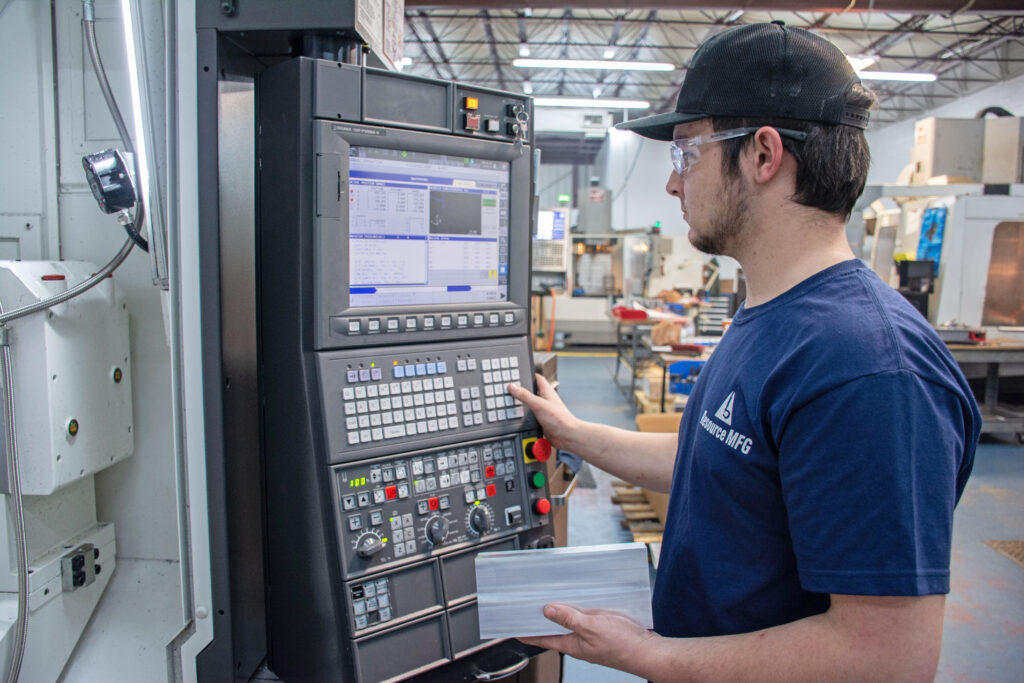How to become a Machinist
What is a machinist?
A machinist works with a variety of machines that are used in manufacturing and production settings. Highly trained machinists will possess a thorough knowledge of the materials and tools needed to complete high quality work. They use machines such as CNC, grinders, or milling machines to create precise parts according to detailed instructions.
Machinists use different materials like metal, plastic, or composites to make finished products from raw materials. They interpret blueprints, CAD models, and technical drawings to decide which machining process would work best. Some will repeat making things, while precision machinists create unique or small batches of items.
Other titles that may refer to machinists are:
- Grinder
- Mill hand
- Tool and die maker
- Programmer
- Operator
How much do machinists make?
Salaries on the top end of the spectrum will be around $32-$33 per hour or $68,000 per year. Entry level salaries will come in around $23 per hour or $47,000 per year. Other factors that will impact how much you can make as a machinist are your location, work history, and skill set.

What do machinists do?
Machinists must know how to use a variety of tools while on the job. Some common tools include: cutting tools, drilling machines, grinders, hand tools, measuring tools, and milling machines. They usually work with metals like aluminum, copper, and steel, but they can also work with ceramics, glass, or composites.
They setup and operate various machines and choose which cutting tools to use for the desired results. They will also closely monitor the machining process, making any changes needed.
They will need to interpret blueprints to successfully complete their project. CNC machines may require programming the machine using computer software. This programming guides the machine’s movements and cutting paths.
They must keep and update accurate records of machine settings and quality control information. They may also complete various work orders or reports, and document any problems discovered in the machining process. Accurate documentation helps discover trends, boost productivity, and track a projects from beginning to end.
They will also do regular maintenance on machines, like cleaning and lubricating, to ensure they work properly. They will also troubleshoot any problems or get help from maintenance team members as needed.
They must also inspect the components they have made to ensure they adhere to the correct specifications. They use tools to measure and check the size of parts to make sure they are the right size. Finally, and importantly, they must also prioritize workplace safety and adhere to safety protocols. They will wear safety gear like glasses, gloves, and ear protection to reduce risks during machining work.
How to become a machinist?
It can take multiple years to become fully trained in this field. But if you follow these steps, you’ll be well on your way to becoming a machinist:
- Get a high school diploma or GED
- Look for an apprenticeship or sign up for vocational training
- Learn to read blueprints and GD&T symbols
- Learn CNC machining
- Apply for machinist jobs that match your skill and experience level
- Gain certifications as you progress in your career
The Machinist career path
As you progress in your career you will gain the experience you need to level up your salary and develop expertise. The skills you gain will guide your career, as more experience and ability will bring you better chances at career progression.
A fairly common career path for a machinist that specializes in CNC may look like this:
- apprenticeship/vocational training
- entry level position
- CNC machinist
- Set up machinist
- CNC programmer
- manager or educator
Becoming a machinist can provide you with the skills and experiences you need to create an enjoyable and meaningful career. If you like working with your hands, tools, and large machines, while also using your math and computer skills, working as a machinist might be the perfect fit for you.
The Manufacturing Industry’s Staffing Leader
Founded in 1995, ResourceMFG is the first and largest nationally branded manufacturing specialty staffing company. We focus on the people side of manufacturing and provide talent to manufacturing facilities around the country. Our team operates from over 200 locations in 34 states, and works with over 2,000 manufacturing clients.
As a specialty brand of EmployBridge, we offer our clients a better alternative to traditional light industrial staffing companies with our unique combination of deep, specialized expertise and powerful digital solutions that give businesses the unmatched speed, efficiency, and flexibility they need to rapidly respond to changing staffing needs and streamline the hiring process from start to finish.
Looking for a career with ResourceMFG?